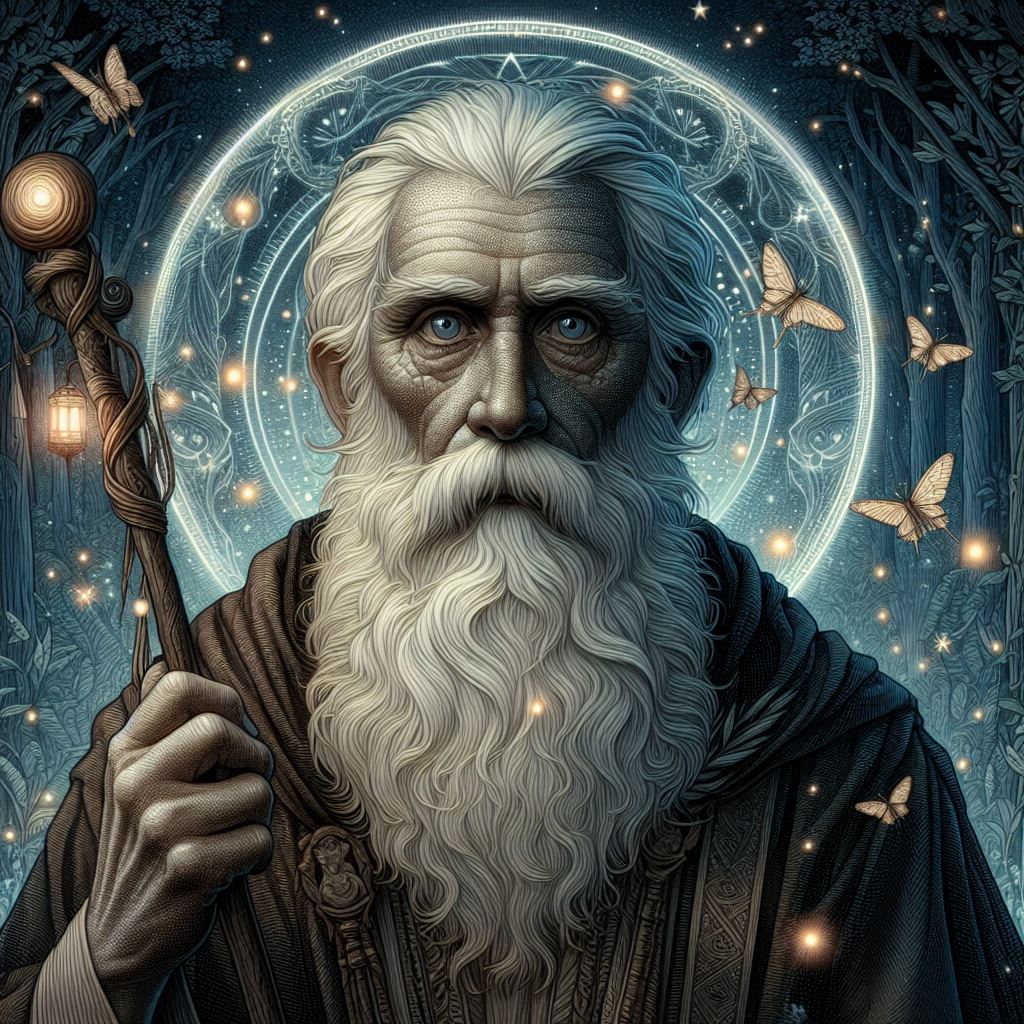Your cart is currently empty!

Pensive Reflections: A brief look at the life of Gerald Brosseau Gardner
Early Life and Education
Gerald Brosseau Gardner was born on June 13, 1884, in Blundellsands, Lancashire, England. His family was upper-middle class, and his father was a civil servant in the British Colonial Administration. Gardner spent much of his childhood in Madeira, Portugal, due to his asthma. He later attended King’s School in Canterbury and the University of London.
Career and Travels
In 1900, Gardner moved to Ceylon (now Sri Lanka) to work as a customs officer. He later relocated to British Malaya (now Malaysia), where he continued his career in civil service. During his time in Malaya, Gardner developed a keen interest in the native cultures and their esoteric practices. He wrote several papers and even a book on the subject.
Initiation into the Occult
Gardner’s interest in the occult deepened during his time in Malaya. He was initiated into the Ordo Templi Orientis (OTO), a secretive fraternal organization founded by Aleister Crowley. Gardner’s travels and experiences in the East greatly influenced his later work in witchcraft.
Return to England and Founding of Wicca
In the 1930s, Gardner returned to England and settled near the New Forest. It was here that he claimed to have been initiated into a coven, which he used as the basis for his book “Witchcraft Today,” published in 1954. This book, along with “The Meaning of Witchcraft” (1959), laid the foundation for modern Wicca. Gardner’s work was instrumental in bringing witchcraft into the public eye and establishing it as a legitimate religious practice.
Controversies and Criticisms
- Alleged Fabrications
One of the most significant controversies surrounding Gardner is the authenticity of his claims about being initiated into a coven in the New Forest. Critics argue that Gardner may have fabricated or exaggerated elements of his initiation story to lend credibility to his work. Some scholars believe that his accounts were influenced by his extensive reading of occult literature and his desire to establish himself as a legitimate authority on witchcraft.
- Homophobia Accusations
Gardner has been accused of homophobia by some members of the witchcraft community. Lois Bourne, one of the High Priestesses of the Bricket Wood Coven, stated that Gardner held a deep-seated hatred of homosexuality, which he considered a perversion and a transgression of natural law. This aspect of his personality has been a point of contention and criticism among modern practitioners who advocate for inclusivity and diversity within Paganism and witchcraft.
- Unreliable Theories
Gardner’s theories and practices were drawn from a wide range of sources, including Freemasonry, the Golden Dawn, and other magical orders. Some critics argue that his eclectic approach led to inconsistencies and unreliable theories. His writings, which often contained eccentric spelling and grammar, have been scrutinized for their lack of scholarly rigor and historical accuracy.
- Questionable Practices
Gardner’s methods of initiation and ritual practices have also been questioned. Some accounts describe his initiation as highly theatrical and convenient, with stories of being stripped, blindfolded, and led into a ceremonial circle by naked witches. These descriptions have led to skepticism about the authenticity and seriousness of his practices.
- Influence of Aleister Crowley
Gardner’s association with Aleister Crowley, a controversial figure in the occult world, has also been a point of criticism. Critics argue that Gardner’s work was heavily influenced by Crowley’s teachings and that he may have borrowed or adapted elements from Crowley’s practices without proper attribution.
- Legacy and Impact
Despite these controversies, Gardner’s impact on modern witchcraft and Paganism is undeniable. His writings and teachings laid the foundation for Wicca and brought witchcraft into the public eye. While his methods and claims have been scrutinized, his contributions to the revival of witchcraft have left a lasting legacy.
Personal Life and Legacy
Gardner was married to Dorothea, and they lived in Highcliffe, Dorset, where he continued his work in witchcraft until his death on February 12, 1964. He is remembered as a pioneer who brought witchcraft out of the shadows and into the mainstream. His writings and teachings continue to inspire practitioners of Wicca and other Pagan traditions around the world.
Gardner’s life was a blend of fact and fiction, dedication, and controversy. His contributions to the world of witchcraft and Paganism are complex and multifaceted, reflecting the intricate nature of the esoteric arts he devoted his life to.






